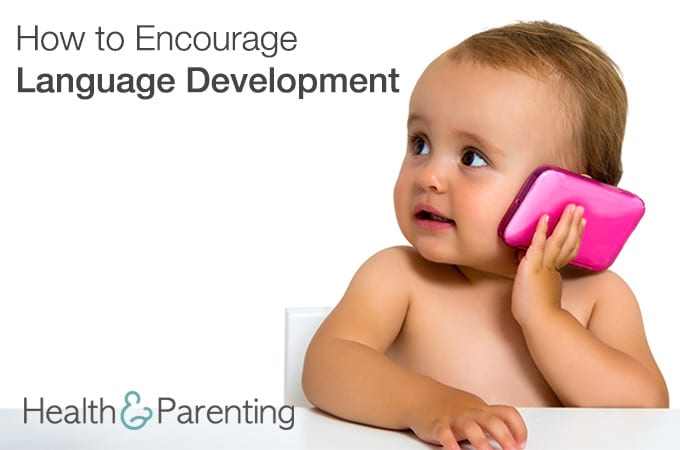For now, your baby is communicating through coos, smiles, babbling and of course crying. But before you know it, your baby’s sweet coos will turn into baby’s first words. Whether it is mama, dada or bye-bye, hearing your little one say his first words, is exciting.
How Babies Develop Language
Your baby’s language development starts long before he can say real words. Somewhere around four to six months, your little one will start babbling and experimenting with making different sounds. Babies use their lips, tongue and palate to make sounds. Making silly noises, such as blowing raspberries, is more than just cute. It is a precursor to talking and an important part of development.
A few months later, your baby starts mimicking tones and sounds similar to the ones you make, which is why talking to your baby is so important. Although it can vary, somewhere around her first birthday your baby may start saying single words.
As she grows, her language skills will continue to develop. With each passing month, your baby adds words to her vocabulary and understands even more.
Keep in mind, what’s considered normal is wide open. Although your baby may be an early talker, it’s also considered normal for a baby not to say his first real words until he is 18 months. Remember, babies sometimes do things at their own pace, not by the books. But if you have concerns, talk to your pediatrician.
Encouraging Language Development
There are several things you can do to help your baby develop her language skills, and you may already be doing many of them. For example, talking and singing to your baby are excellent ways to encourage language. Although your baby will not understand everything you say, she is still a captivated audience. Describe activities as you’re doing them, point out objects and make up silly rhyming songs.
It’s also helpful to respond when your baby “talks” to you. For instance, if you’re talking to your baby, and he coos or babbles back, pause just like you would if he was talking using words. Make eye contact, be responsive and let your little one know you’re listening.
Reading is also a great way to encourage language development. Consider making reading a part of your nighttime routine. Reading also provides quiet time to cuddle with your baby and help her settle down. While you’re reading, point to the pictures as you say the words. This helps your baby understand what different words mean.
Written by MaryAnn DePietro @ writerlady34
This information is not intended to replace the advice of a trained medical doctor. Health & Parenting Ltd disclaims any liability for the decisions you make based on this information, which is provided to you on a general information basis only and not as a substitute for personalized medical advice. All contents copyright © Health & Parenting Ltd 2016. All rights reserved.










